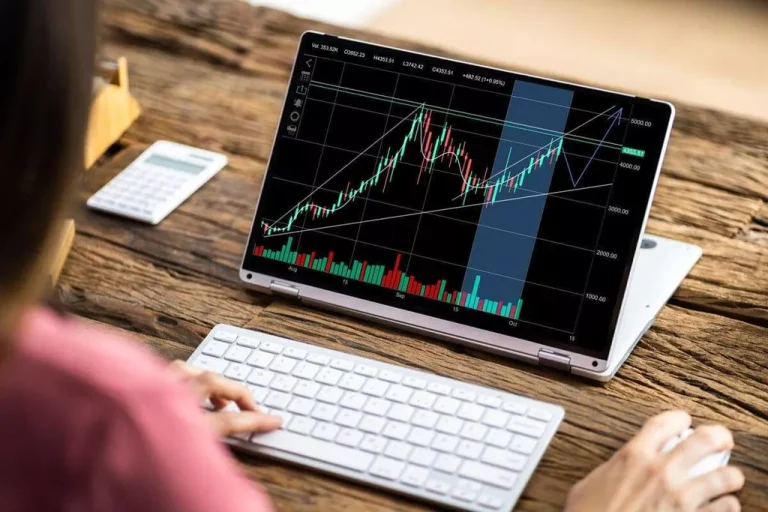What Are The Types of Crypto Exchanges Available In Market?

Founded in 2017, BitMart is a global cryptocurrency exchange that’s available in over 180 countries. It allows users to buy, sell, and store over 1,500 digital currencies and tokens. The originally San Francisco-based crypto exchange is now a geographically decentralized company with no headquarters and available in 100+ countries. It stands out for providing a user-friendly trading experience, robust security, and a range of advanced features for experienced traders.
- The curious segment of crypto investors thus need to know more about a proper platform which allows them to trade swiftly in various digital assets.
- What’s more, Electrum allows you to keep your private keys offline in cold storage.
- While there are a mind-boggling number of crypto exchanges, they mainly are of only three types—CEXs, DEXs, and Hybrid Exchanges.
Another type of variant that allows the trader the opportunity to purchase or sell an asset at a predetermined price is an options contract. However, they are not required to buy or sell, unlike in a futures contract. A sell contract is referred to as a put option, whilst a buy contract is known as a call option. Typically, traders only maintain positions for a month, but they frequently do. Swing traders look to capitalize on volatility waves, which can frequently continue for several days or weeks. For detailed trading judgments, they combine fundamental analysis with technical analysis.
We have reviewed a wide range of decentralized cryptocurrency exchanges across various important parameters and here are the top 10 DEX platforms based on our evaluation. However, on the flip side, you are more vulnerable to locking yourself out of your money. Other problems with DEXs may include low volumes and low liquidity due to lack of popularity at the moment. For newbies who are trying out different types of cryptocurrency exchanges, it may make more sense to start at an exchange that offers fiat/crypto pairings. That’s precisely the reason why in 2017 and 2018 exchanges who provided this service became some of the most popular ones.
To know more about the prominent exchanges of India, Forbes Advisor India has prepared a list of the best of the exchanges operating in India. Read our article on Best Cryptocurrency Exchanges In India to gather more information on specific exchanges and their key features. You’ve sifted https://www.xcritical.in/ through the pool of potential exchanges and found some that appear to have excellent reputations, stellar histories concerning security, and no history of hacks or scams. That’s a great start, but now you’ll need to consider how each exchange will affect your daily investing.
Like decentralised exchanges, a hybrid makes use of smart contracts to ensure that there is no central figure imposing on the integrity of the trade. Basically, this reduces security risks and puts the safety of a customer’s assets onto a blockchain rather than relying on a company. As of now there are no restrictions on trading or investing via crypto exchanges in India. However, this segment is not regulated by any central authority, so trading in cryptocurrencies is merely done at the risk of the investors.
Decentralized exchanges are decentralized to the point that if you make a mistake such as sending funds to the wrong address, there’s nothing the exchange can do to help you. You can use your cryptocurrency tokens to purchase from service and product providers who accept the digital currency. You can also “spend” your tokens at a cryptocurrency exchange to trade it for local fiat currency or to change it to another token. For example, you could trade your Bitcoin for Ethereum at an exchange which offers both currencies. For example, if you’re looking to trade cryptocurrencies anonymously, Best Wallet comes with an in-app exchange. This is a decentralized exchange, so you won’t need to provide any personal information.
Through this blog, you can understand what different type of crypto exchange suits your business needs. While each hybrid exchange will have its own approach to this combination, there are primarily types of cryptocurrency exchanges 4 aspects that these exchanges are trying to combine. They take the usability and liquidity of centralized exchanges and combine them with the anonymity and security of decentralized exchanges.

As such, you’ll need to manually add new networks, which might be daunting for beginners. You won’t pay fees to store or receive cryptocurrencies and there’s no markup on outgoing transfers. This crypto wallet offers self-custody services, so you’ll remain in full control of your private keys. These are displayed as a 12-word passphrase when you first set MetaMask up. You’ll need to re-enter the passphrase to ensure it’s been written down correctly. Raydium charges a flat 0.25% trading fee and does not mandate any KYC requirement for users to start trading on the platform.
However, please note that the cryptocurrency market is dynamic, and rankings may change over time. Cryptocurrency exchanges might sound as simple as this – they are the platforms that allow you to buy and sell different types of cryptocurrencies. However, like most things in the crypto world, exchanges can get complicated and traditional stocks & bonds require more user attention than exchanges. The architecture of crypto exchanges also plays a crucial role in ensuring the security and privacy of users’ funds and information.
Here is a complete list of best-centralized cryptocurrency exchanges to buy/sell/trade bitcoins and other cryptocurrencies. As of 2023, some of the best centralized cryptocurrency exchanges are Binance, MEXC, and Bybit. Binance and Bybit require KYC while MEXC is a non-KYC exchange, offering anonymous crypto trading. In terms of features, these exchanges are very advanced and you will get to enjoy the most comprehensive CEX service. The architecture of different types of cryptocurrency exchanges is also constantly evolving and improving, as developers and engineers push the boundaries of what’s possible.
Traders are required to know how to own and operate personal crypto wallets, they also need to know how liquidity pools work, and more. In general, things are not simplified on decentralized exchanges and a lot of stuff needs to be done by hand, and this is why it is not great for beginners. Broadly there are three types of crypto exchanges—centralized exchanges (CEXs), decentralized exchanges (DEXs), and hybrid exchanges.
They also offer security features and storage options for your digital assets that may be superior to maintaining wallet software on your own. Cryptocurrency exchanges have started offering custodial key storage for their users, but you should use this service cautiously, as cryptocurrency exchanges are often prized targets for cybercriminals. When looking for the safest crypto exchanges, the first choice should come down to decentralized exchanges. While these exchanges might not have high levels of security, they don’t use custodial wallets, meaning that users’ funds are never stored there.
If you are keen to trade non-BSC tokens, you would need to explore other decentralized exchanges. One of its most promising offerings is Best DEX, which is a decentralized trading platform designed to offer you the most cost-effective transactions by pairing with optimal liquidity pools. It allows you to elevate your trading strategy with added market intelligence featuring live charts and news, detailed token data, and insights like security reviews and community sentiment ratings.





